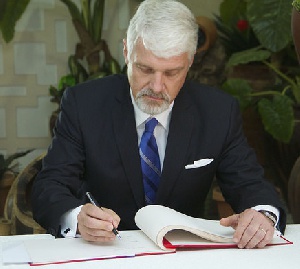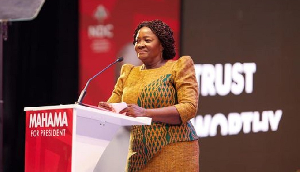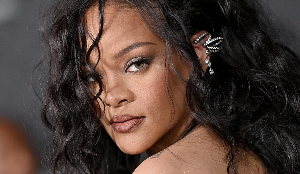Business News of Wednesday, 22 October 2014
Source: BFT
Major donor backs Ghana-IMF talks
The European Union (EU), the country’s largest financial donor, says it supports government’s ongoing talks with the International Monetary Fund (IMF) aimed at crafting a programme to restore fiscal stability and rebuild depleted foreign exchange reserves.
After months of dithering, President John Mahama in August instructed a team of negotiators led by Dr. Kwesi Botchwey, a former Minister of Finance, to open discussions with the IMF for a possible stabilisation programme.
Two rounds of dialogue have since been held in Accra and Washington, with the third and final round expected to take place in Accra in November. Finance Minister Seth Terkper said this week he is confident the parties will reach an agreement for a funded programme after next month’s discussions.
William Hanna, who began work officially in October as the EU’s country ambassador, told journalists in Accra on Monday that the EU is pleased to see government engage with the IMF.
“Ghana’s fiscal problems threaten its economic growth and the deficit affects vulnerable people. That’s why we welcome this decision that has been taken to talk to the Fund,” he said. Highlighting the importance of tackling structural causes of the large deficits, he added: “Reforms are needed in public financial management to continue the robust economic growth that Ghana has witnessed."
For decades, donors -- including the World Bank, African Development Bank, the European Union and other foreign governments -- have given generously to aid the country’s development. The resources have been channelled through Ghana’s budget or released directly to fund specific programmes run by foreign agencies.
But the donors, whose financial assistance is not unconditional, have been concerned over the country’s recent economic challenges and the corruption that has been exposed in some government agencies.
Ghana’s budget and current account deficits have been in double digits since 2012, pushing up the government’s borrowing costs and weakening the currency. Massive graft was also recently uncovered at the National Service Scheme Secretariat, where senior officials allegedly bloated the payroll with names of non-existent workers.
In early 2013, when the Ministry of Finance disclosed the near-tripling of the budget gap in the 2012 fiscal year to 11.8 percent of GDP, donors -- including the EU -- immediately withheld from honouring some of their existing financial pledges, causing further financial difficulties for the government.
At the end of that year, the budget recorded a shortfall of GH¢519.1million (worth US$240million at the time) in financial grants expected from donors. The actual funds received, GH¢739.4million, contributed 3.8 percent of the government’s financial resources available to spend in 2013.
Contrary to popular perception, the support donors provide to the budget accounts for a small share, 3-5 percent, of the country’s total revenues. But it is nonetheless a critical component of public sector funds, and for some ministries and government agencies it is a lifeline that keeps them running.
In February, Mr. Terkper told the B&FT that donors did not disburse about US$700million of financial pledges during 2012-13 and blamed this partly for the widening of the fiscal deficit -- as government borrowed in substitution for the undisbursed funds.
When asked whether the EU has kept up with its commitments this year, Ambassador Hanna did not answer directly; saying they are watching the economic situation as it evolves. But he also pointed out that because they have to account to their own taxpayers for using their taxes to provide assistance abroad, it is necessary that donors also demand accountability and commitments from a beneficiary government.
Entertainment










